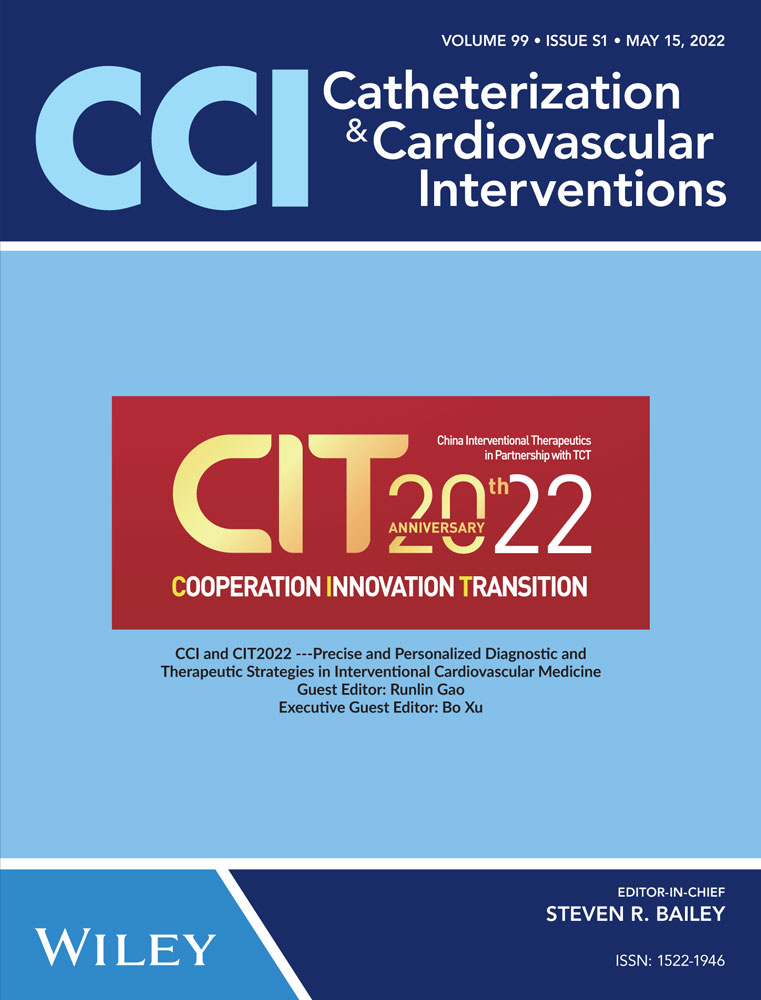Ticagrelor versus clopidogrel in patients with acute coronary syndrome undergoing complex percutaneous coronary intervention
Yuzhuo Li and Jing Li contributed equally to this article.
Abstract
Objectives
To evaluate the effectiveness and safety of ticagrelor versus clopidogrel in patients with acute coronary syndromes (ACS) undergoing complex percutaneous coronary intervention (PCI).
Background
It remains inconclusive whether ticagrelor is superior to clopidogrel in ACS patients undergoing complex PCI in real-world practice.
Methods
Based on an all-comers PCI registry, we compared the long-term effectiveness and safety between ticagrelor and clopidogrel in ACS patients undergoing complex PCI, defined as PCI procedures for complex lesions including bifurcation, chronic total occlusion, ostial, tortuous, calcific, diffused, thrombus-containing, and restenotic lesions. The primary ischemic outcome was a composite of cardiac death, myocardial infarction, or stroke. The safety outcome comprised Bleeding Academic Research Consortium (BARC) types 2, 3, and 5 bleeding. Propensity score matching (PSM) was performed to reduce bias.
Results
Among ACS patients who underwent complex PCI, 4373 (35.2%) and 8065 (64.8%) received dual antiplatelet therapy based on ticagrelor and clopidogrel, respectively. The incidences of composite ischemic events (before PSM: 1.74% vs. 2.84%; after PSM: 1.50% vs. 2.65%; p < 0.01 for both) and all-cause death (before PSM: 1.23% vs. 2.12%, p < 0.01; after PSM: 1.09% vs. 1.81%, p = 0.02) were significantly lower in the ticagrelor-treated than in the clopidogrel-treated group. There was no significant difference in BARC types 2, 3, and 5 bleeding between groups.
Conclusions
Whilst the risk of major bleeding was comparable between the two drugs, ticagrelor was associated with a significantly lower risk of ischemic events than clopidogrel in ACS patients undergoing complex PCI.
CONFLICT OF INTERESTS
The authors declare that there are no conflict of interests.
Open Research
DATA AVAILABILITY STATEMENT
The raw data supporting the conclusions of this article will be made available by the authors without undue reservation. Further inquiries can be directed to the corresponding author.




